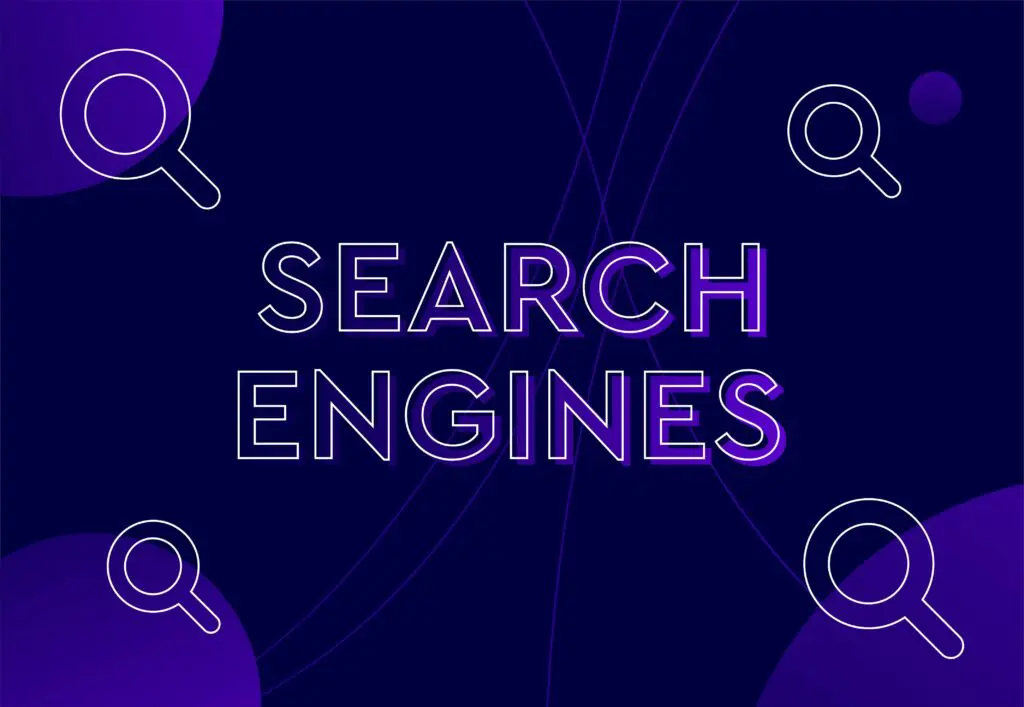
A list of search engines other than Google

Yes, you read the title of this page correctly, there are other search engines that you should be optimising your website for. We all know that Google dominates the industry (and the general web, being the most accessed website on the internet), however, with changes in the way we search, it’s important you know about other search engines out there that you and your customers could be using.
Why use other web browsers?
One of the biggest reasons users look to others over Google is due to privacy concerns, with the platform tracking user data in Google Analytics 4. The rise in AI is another reason why people look elsewhere, platforms such as ChatGPT and Bing Chat enable users to search more conversationally, likewise for Apple users that use Siri for voice search.
Location also plays a key role in the different search engines used by online users. So if you’re looking to target specific countries as part of your international strategy you should also be tailoring your strategy to the preferred search engine in those locations.
25 alternative search engines to Google
1. ask.com
Remember Ask Jeeves? Well, ask.com is the rebranded search engine since ‘Jeeves’ was removed in 2006. The original idea for this search engine was to allow users to ask questions in natural language, so Jeeves the avatar butler would then go off to search for answers. Even though Jeeves has been dropped, the platform still works in the same way, whilst also displaying news and information about culture, lifestyle, and TV & Movies which users might find interesting.
2. Baidu
Baidu is the most popular search engine used in China and is part of a multinational technology company that specialises in internet services, products, and AI. The platform is also similar to Google in that it offers a map feature allowing users to search for locations across China.
3. Bing
Powered by Microsoft, Bing search allows users to search across the web. Again, it offers very similar features to Google including Images, Videos, Shopping and Maps. By using its AI tool ‘Copilot’ users can gain more detailed answers through a conversational chat.
4. Brave Search
Launched in 2021, Brave Search was created to be the default search engine used by users in predominantly the US and Canada, whilst also taking on Google, Qwant and DuckDuckGo. The platform aims to allow users to search ‘privately’ and uses its independent index to generate results. Users can also cross-check results with Google and a new AI feature called ‘the summarizer’ provides more direct-to-the-point answers at the top of the results, before giving more detailed answers further down the SERP (Search Engine Results Page).
5. Dogpile
Created from the frustration of varying results across other search engines, Dogpile is a metasearch engine that combines results from other search engines including Google, Yahoo! and Bing.
6. DuckDuckGo

Credit: https://duckduckgo.com/
A search engine that is praised for its privacy, DuckDuckGo is owned by an American software company of the same name. The platform prides itself on allowing users to search without being tracked and even includes a fire button that allows users to ‘burn’ their tabs and browsing history after reading.
7. Ecosia
Looking for a search engine that cares? That’s Ecosia. The platform plants trees when users search, making it in their words ‘the greenest way to search’.
8. Elasticsearch
Built around and powered by AI and machine learning, Elasticsearch is the search engine for businesses. By focusing on security and the convenience of centralised sources and one platform, they pride themselves on clients such as TMobile and Land Rove.
9. Excite
Another metasearch engine, Excite allows users to search, email, read the news and access quick links to other platforms such as Amazon and eBay.
10. Gigablast

Credit: https://www.gigablastsearchengine.com/
An American open-source search engine, Gigablast was founded in 2000. The uniqueness of this platform is that users can choose to search ‘All the Internet’ or just the individual top 7 search engines on the web (Ask.com, Bing, DuckDuckGo, Google, Startpage, and Yahoo!).
11. HotBot
Very popular in Canada, HotBot was initially launched in 1996, before being relaunched in 2022. There’s also a Chrome add-on to make it easier for searchers to use.
12. Kagi
Looking to search but don’t want to be bombarded with ads? Then Kagi is the search engine for you. It’s a search engine that requires users to create an account and sign in before searching ad-free for personalised results.
13. Lycos
Short for the Latin word Lycoside meaning wolf spider, Lycos is a search engine and web portal. The platform is quite simple and basic, which if you’re used to platforms like Google, can seem not very user-friendly.
14. MetaCrawler
As its name suggests, MetaCrawler is a metasearch engine which provides users with the ability to search for a wide range of things including images, videos, and news.
15. Mojeek
A British search engine, Mojeek provides results from its own index of the web. Again this search engine focuses on user privacy and provides different results. They even have a feature that allows users to search via emotions such as love, wow, haha, sad and angry.
16. Petal
Very similar to Gigablast, Petal enables users to search the web and the top 6 other search engines on the Internet.
17. Quant

Credit: https://www.qwant.com/
Qwant takes pride in being the search engine that doesn’t know anything about its users. Founded in Nice, it’s extremely popular in France and has apps on iOS and Android.
18. Searx
Searx is a free and open-source metasearch engine, that doesn’t share the IP addresses or search history of its users.
19. Sogou
Another search engine that is popular in China is Sogou , which is from a tech company with the same name.
20. Startpage
Dutch search engine Startpage again prides itself on its privacy features, even stating that users can gain access to Google Search results without having to be worried about being tracked.
21. Swisscows
Swiss search engine Swisscows allows users to search in a family-friendly way by removing explicit results. It also keeps its users anonymous by not tracking data on them.
22. Yahoo

Credit: https://uk.yahoo.com/
Owned and operated by the company of the same name, Yahoo! Search is a popular search engine that uses Microsoft Bing to power its results. The platform also shows users trending content, helping them to discover what’s going on.
23. Yandex
Russian search engine Yandex is similar to Google in showing answers relating to news, shopping and images. Its Wizard Answer is a feature that helps provide additional information searchers might find helpful.
24. Youdao
Part of Chinese tech company NetEase, Youdao is more of a translation search engine, allowing its users to learn online and therefore is commonly used by students and young professionals.
25. You.com
This search engine focuses on personalisation by allowing users to use an AI chat to find the answers they are looking for. Users of you.com can then upvote, downvote or block results to ensure they’re getting the best information for them.
Now you might say that you.com isn’t a traditional search engine, but we’ve still included it as the way we search evolves as will the rise in AI chatbots.
Changes in the way we search
As mentioned, how we search is evolving, and as a result, users are turning to other platforms to find the answers to their questions. For example, social media users search the platforms to discover the content they want to see. This is why your organic strategy should include such things as TikTok SEO.
As the popularity of AI chatbots continues to increase, businesses should also ensure they are staying up to date with the technology and search engines’ stances on using it to ensure they aren’t damaging their SEO and online visibility.
FAQs
Answered by our SEO team
Where do AI assistants such as Alexa source their information from?
1. AI assistants source their information from all types of search engines. For example Google Home uses Google, and Amazon Alexa uses Bing.
Should I make all of my content conversational to optimise for voice search?
2. Only optimise certain ones which you think would appear on a voice search. Not all of your content has to be super conversational. Keep it for user-focused content and anything informational.
Are SERPs similar between search engines?
3. No not normally, they use different algorithms and return different search results. Bing and Google SERPs are vastly different.
What share of total global searches does Google hold?
4. Google has a market share of around 90%- Sept 24′.